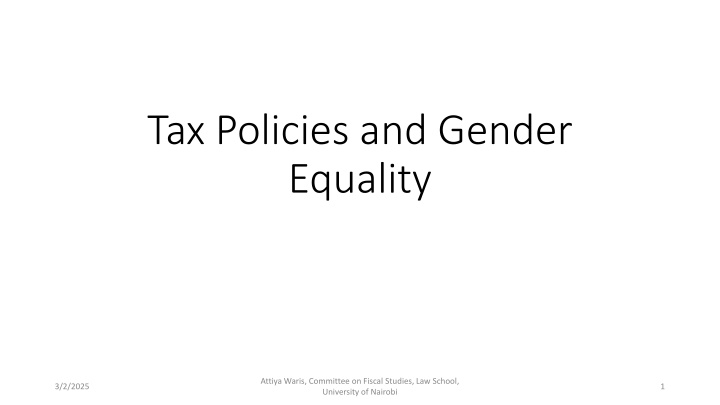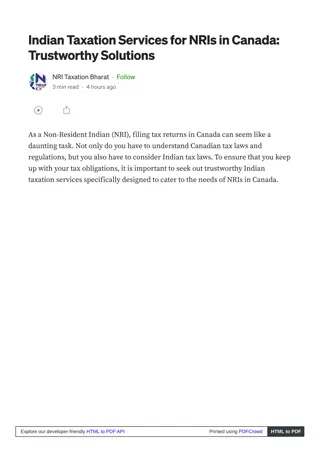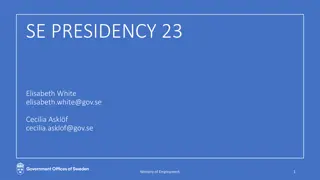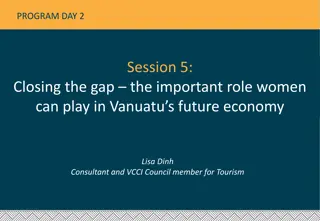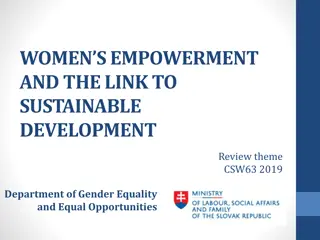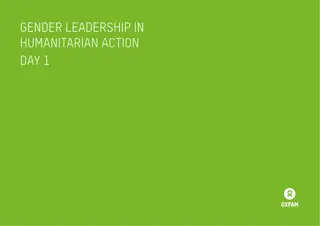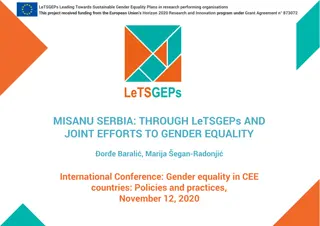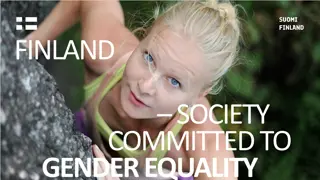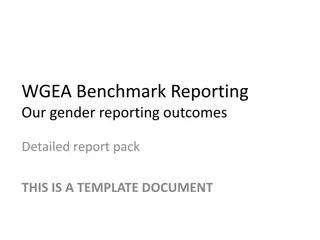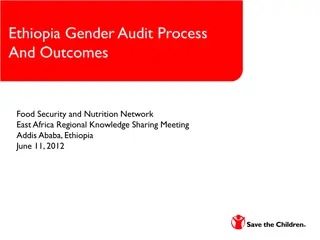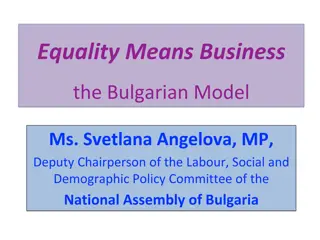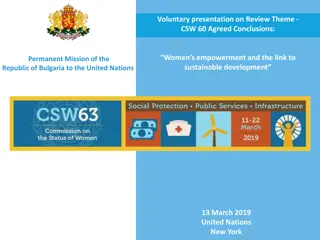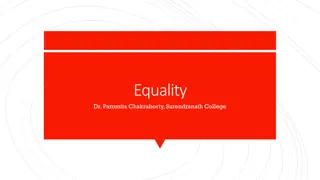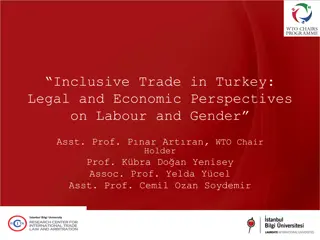Gender Equality in Tax Policies
The link between taxation and gender is explored in this study by Attiya Waris from the University of Nairobi. The impact of tax policies on gender equality, implicit and explicit biases, and the role of work are discussed. The study also delves into how taxation funds resources like education and healthcare, affecting gender directly, especially for women who rely more on public services due to economic disparities. Data analysis based on African country surveys sheds light on tax-GDP ratios and their implications on gender equality.
Download Presentation

Please find below an Image/Link to download the presentation.
The content on the website is provided AS IS for your information and personal use only. It may not be sold, licensed, or shared on other websites without obtaining consent from the author.If you encounter any issues during the download, it is possible that the publisher has removed the file from their server.
You are allowed to download the files provided on this website for personal or commercial use, subject to the condition that they are used lawfully. All files are the property of their respective owners.
The content on the website is provided AS IS for your information and personal use only. It may not be sold, licensed, or shared on other websites without obtaining consent from the author.
E N D
Presentation Transcript
Tax Policies and Gender Equality Attiya Waris, Committee on Fiscal Studies, Law School, University of Nairobi 3/2/2025 1
Content Linking Tax and Gender Implicit and Explicit Bias Women and their Interactions with Tax Role of Work Which Way Gender Equality 3/2/2025 Attiya Waris, Committee on Fiscal Studies, Law School 2
LINK BETWEEN TAXATION AND GENDER Taxation funds resources and service delivery such as education, health care and therefore affects gender directly.[1] This is because women are in need of these public services more than men because they form part of the poorest people in the community. Health care TAX Social welfare education 3/2/2025 Attiya Waris, Committee on Fiscal Studies, Law School 3
Data Basis Data Basis Based upon AEO Country survey data and the African Development Bank's Statistical department for the period 1996 to 2008 There is no data for Somalia and only a very limited coverage and low-quality data for Zimbabwe, therefore 51 African countries included The Human Poverty Index for developing countries (HPI-1), and the Human Development Index (HDI) combine the aspects of a long and healthy life, knowledge, and a decent standard of living MDG Progress Index adopted from Centre for Global Development (CPD) Attiya Waris, Law School, University of Nairobi
Tax per GDP <10% (n=16) 10%-15% (n=19) 15%-20% (n=9) >20% (n=7) Country Algeria, Angola, Central African Republic, Chad, Comoros, Democratic Republic of Congo, Republic of Congo, Equatorial Guinea, Guinea- Bissau, Liberia, Libya, Madagascar, Niger, Nigeria, Sudan, Sao Tome and Principe Botswana, Burkina Faso, Cameroon, C te d Ivoire, Egypt, Eritrea, Ethiopia, Gabon, Gambia, Guinea, Malawi, Mali, Mozambiqu e, Rwanda, Sierra Leone, Tanzania, Togo, Tunisia, Uganda Benin, Burundi, Cape Verde, Ghana, Kenya, Mauritius, Morocco, Senegal, Zambia Djibouti, Lesotho, Mauritania, Namibia, Seychelles, South Africa, Swaziland Attiya Waris, Law School, University of Nairobi
Discussion Using 2003 as a base year could be changed for average for entire period 1996-2008, but we d lose the idea of a time- lag in collecting and spending taxes. Assumption is that tax has a higher quality of revenues due to it mobilising citizens to demand for better services. Aid, extractive resource revenues, and other revenues should also be studied in relation to MDG as well. The quality of the data has improved significantly recently (tax data and MDG data), but still better data needed. Exclusion of mineral revenues is still not entirely clear due to problems of classifying between taxes and royalties. Attiya Waris, Law School, University of Nairobi
Types of Bias Gender Bias Explicit Implicit 3/2/2025 Attiya Waris, Committee on Fiscal Studies, Law School 9
Explicit When we talk about explicit gender biases in taxation , this is when a provision directly treats women and men differently.[3] For example when it comes to tax deductions and credits, basically how they are allocated. Case in point, Morocco. They have a joint taxation system where the man gets tax credits when he is the sole breadwinner where as for a female bread winner she has to show evidence of a dependent spouse for her to be allocated the same treatment. 3/2/2025 Attiya Waris, Committee on Fiscal Studies, Law School 10
Implicit On the other hand implicit bias refers to a situation where the tax provision has different impact on both men and women and does not directly discriminate on either. For instance the fact that highly collected tax is from VAT which affects poor women mostly. This is because VAT is a consumption tax that is levied when products are bought and most zero rated and exempted non food products are not beneficial to this group of women. 3/2/2025 Attiya Waris, Committee on Fiscal Studies, Law School 11
Women and their Interactions with Tax Who designs tax policy? Who are the representatives? Who designs budgets? Who lobbies? Who understands tax policy? Direct v indirect taxes? What is the make up of civil servants; taxpayers? 3/2/2025 Attiya Waris, Committee on Fiscal Studies, Law School 12
Role of Work Defining work Informal v formal Paid v unpaid Digital economy 3/2/2025 Attiya Waris, Committee on Fiscal Studies, Law School 13
Which Way to Gender Equity Taxation of multinational corporations. Taxation of wealth e.g. inheritance and property. Institutional representation. Unburdening women by proper service delivery. Taxation policies without bias. 3/2/2025 Attiya Waris, Committee on Fiscal Studies, Law School 14
Thank you! Asante! Twitter: AttiyaWaris Email: waris@uonbi.ac.ke Attiya Waris, Committee on Fiscal Studies, Law School, University of Nairobi 3/2/2025 15
